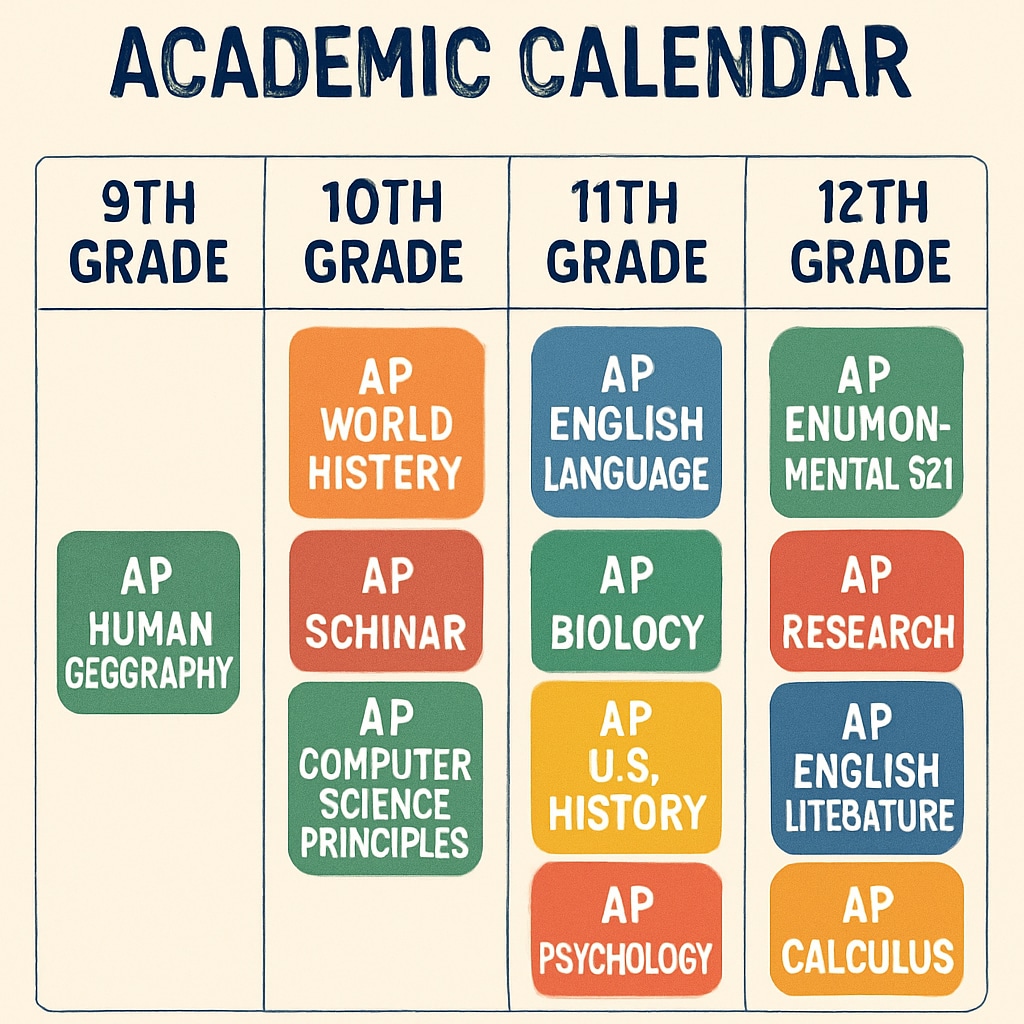Effective AP course, high school planning, and AP Statistics scheduling can significantly impact a student’s college readiness and application strength. This comprehensive guide reveals how to strategically distribute four Advanced Placement classes throughout high school while maintaining academic balance.

Understanding AP Course Load Distribution
Distributing AP classes requires careful consideration of:
- Course difficulty levels (as ranked by the College Board)
- Prerequisite knowledge requirements
- Personal academic strengths
- Extracurricular commitments
For example, STEM-oriented students might prioritize AP Calculus earlier, while humanities-focused students may frontload AP Literature.
Optimal Timeline for 4 AP Courses
A balanced four-year plan typically follows this progression:
- Sophomore Year: 1 introductory AP (e.g., AP Human Geography)
- Junior Year: 2 intermediate APs (e.g., AP Language and AP Biology)
- Senior Year: 1 challenging AP (e.g., AP Physics or AP Statistics)
This gradual increase helps students adapt to college-level work while avoiding burnout.

AP Statistics: The Strategic Timing Question
According to AP Central, Statistics presents unique scheduling considerations:
- Junior Year: Ideal for STEM students after completing Algebra II
- Senior Year: Better for humanities students needing math credits
- Never pair with another math-intensive AP in the same year
Balancing Rigor and Performance
Remember these key principles:
- Quality over quantity – strong grades in fewer APs beat mediocre performance in many
- Align with intended college major when possible
- Leave room for extracurricular excellence
Strategic AP course planning creates a compelling academic narrative for college admissions.


